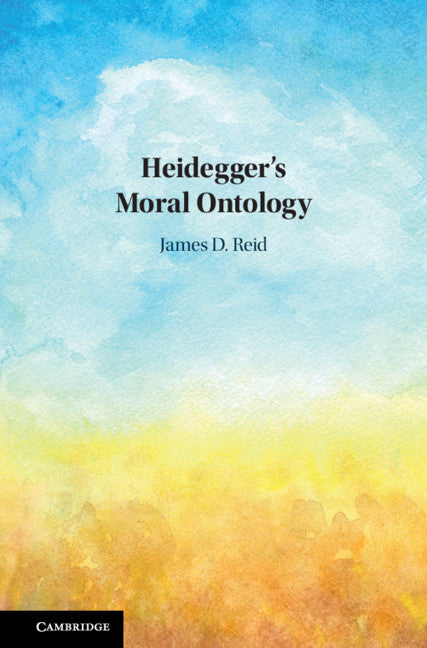Freshly Printed - allow 4 days lead
Couldn't load pickup availability
Heidegger's Moral Ontology
Offers the first full account of the ethical themes underwriting Heidegger's early efforts to develop an account of human existence.
James D. Reid (Author)
9781108422185, Cambridge University Press
Hardback, published 15 November 2018
248 pages
23.4 x 15.6 x 1.7 cm, 0.49 kg
'Drawing on a broad range of literary and philosophical sources, Reid perceptively, sensitively and rigorously explores the case for a 'moral ontology' grounded in Heidegger's early works: this is essential reading for anyone interested in modern European philosophy, and in the problems and possibilities embedded in Heidegger's thought.' Sacha Golob, King's College London
Heidegger's Moral Ontology offers the first comprehensive account of the ethical issues that underwrite Heidegger's efforts to develop a novel account of human existence. Drawing from a wide array of source materials from the period leading up to the publication of Being and Time (1919–1927), and in conversation with ancient, modern, and contemporary contributions to moral philosophy, James D. Reid brings Heidegger's early philosophy into fruitful dialogue with the history of ethics, and sheds fresh light on such familiar topics as Heidegger's critique of Husserl, his engagement with Aristotle, his account of mortality, the role played by Kant in the genesis of Being and Time, and Heidegger's early reflections on philosophical language and concepts. This lively book will appeal to all who are interested in Heidegger's early phenomenology and in his thought more generally, as well as to those interested in the nature, scope, and foundations of ethical life.
Introduction: ethics and ontology
1. Ethical criticism
2. Ethical truth and the quarrel between the ancients and the moderns
3. Excursus on being and the good
4. Things and persons: an exercise in moral ontology
5. Owning up to life and death
6. The ethics and ontology of formal indication
Conclusion.
Subject Areas: Western philosophy, from c 1900 - [HPCF]


